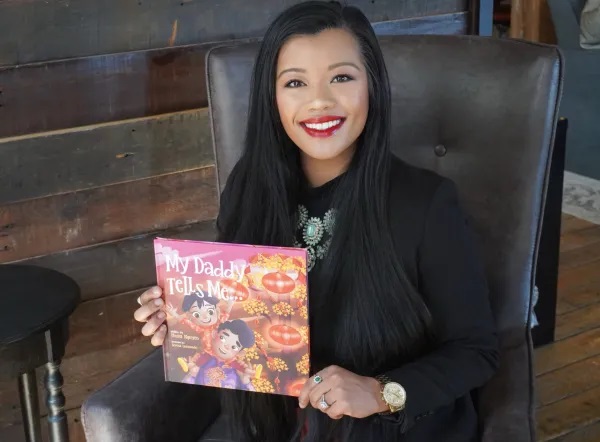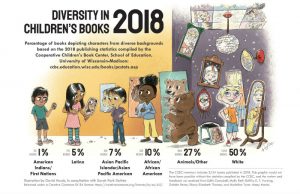

Thuba Nguyễn (she/her) is an Early Childhood Education Specialist, member of the AMAZEworks board of directors, and children’s book author of her newly published book, My Daddy Tells Me. Thuba aims to promote early literacy as a catalytic tool for generational and social change through her work as an author, educator, and small business owner of Children of the Collective Arts Academy, LLC, offering services ranging from DEI training, consultations, restorative circles for community healing, and more.
AMAZEworks is honored to have Thuba as one of our newest board members and grateful to have her voice on our team. We are thrilled to highlight her new children’s book in our April newsletter. In a recent interview, we asked Thuba to tell us more about her book and its importance.
Our conversation began with Thuba sharing the significance identity and relationships have played in her life. As a Vietnamese African-American refugee, it was important to Thuba that her book, My Daddy Tells Me, centered the transformative relationship between the protagonist, Mai, and her father. The book follows Mai and her father from Vietnam to America. He helps Mai develop a healthy, complex identity and understand concepts like cultural assimilation, migration, and cultural preservation. Thuba says, “I don’t believe that children should learn about their heritage or culture through oppressive images and reliving the trauma of ancestral abuse.” Rather, she hopes that My Daddy Tells Me inspires conversations about systems of oppression without reducing people to one identity or experience.

Her own experience as well as the data inspired her to share her story. According to the 2018 Diversity Gap in Children’s Publishing, only 7% of children’s books portray Asian Pacific Islander/Asian Pacific American characters, and only 10% portray Black/African American characters. Oftentimes, their stories are told through a white lens that perpetuates cultural stereotypes and misconceptions. Thuba felt it was important to write a story with an authentic voice to reframe the single narrative that often represents these identities.
“Instead of trying to create an image of the Black and Asian experience, it was inside of me. I made sure [Mai’s] image wasn’t that of what I see in the media now, but what I see in myself.” By using her own life experience as inspiration, Mai authentically represents her Vietnamese African-American identity and shows that culture can be expressed in many different ways. In My Daddy Tells Me, Mai’s father says that the day she was born was the happiest day of his life, countering the narrative that there is a preference for sons in Vietnamese culture. Mai and her father eat dinner in their living room while singing karaoke rather than at a dining room table. They make phở and go fishing together. These images are inspired by Thuba’s real life experiences and showcase the nuance of identity and relationships.
In addition to providing authentic representation, writing her book also resulted in meaningful reflection for Thuba on her own identity and relationships. “This is not a regurgitation of my relationship with my father. It’s my way of self-healing.” She wanted to demonstrate that fathers can be a support system for their daughters as they undergo self-discovery. Reimagining her relationship with her father allowed Thuba to experience healing and understanding about her own life, familial relationships, and cultural expectations. Their family experienced forced relocation and discrimination, which impacted their identities. However, Thuba knows that their identities encapsulate much more than that. “I am not a product of my experience, but what can I produce from my experiences?” This mindset helped inspire the creation of My Daddy Tells Me, centering relationships rather than a single life event.
To conclude our interview, we asked Thuba to recall a time when she experienced belonging. She named her strongest sense of belonging as finding acceptance by her white teachers. She felt empowerment in her Vietnamese culture, something she had not previously experienced in the classroom. She was told her name was special and allowed to wear her traditional Vietnamese clothing to school. While this validation was meaningful for her, she now names this feeling as a maternal white systemic approval. While her teacher’s good intentions improved Thuba’s classroom experience, the impact still left her on her own to navigate the systems of oppression she would face throughout her life.

It is important to move beyond simply highlighting cultural differences. We must also center transformative conversations. Thuba hopes that her book can equip educators, caregivers, and students to have conversations about oppressive systems that transform communities.
Thuba Nguyễn beautifully portrays her own complex identities and familial relationships in her book. The power of an authentic voice is undeniable. Conversations about identity and difference have the power to create a cultural shift that centers belonging. AMAZEworks is so grateful to have Thuba’s voice in our community and to see her book shared widely to help bring belonging to life.
You can get your own copy of My Daddy Tells Me here!